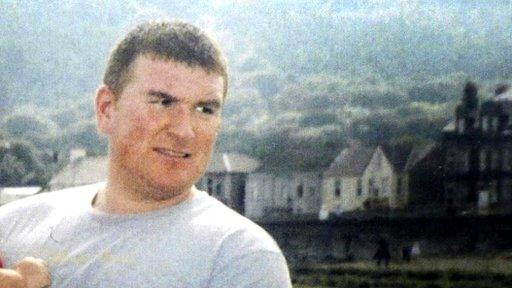Robert McCartney: Ombudsman rejects claim killers protected
- Published
Catherine McCartney says the Ombudsman report 'hasn't dispelled suspicions'
A claim the police failed to properly investigate the murder of a Belfast man by the IRA because they were protecting informers has been rejected.
Robert McCartney, 33, died after being beaten and stabbed outside a pub in Belfast city centre in January 2005.
Three men were charged in connection with his murder but were acquitted.
Mr McCartney's sister, Catherine, told the BBC she was disappointed that the ombudsman had rejected the claim, but said the family would not give up hope.
There is no evidence to support a claim by the family of the father-of-two that his killers were protected from justice, the police ombudsman has said.
"There's nothing in this report that I don't have at home," Catherine McCartney told the BBC's Good Morning Ulster programme.
"As a family, it's hard to accept or reject it."
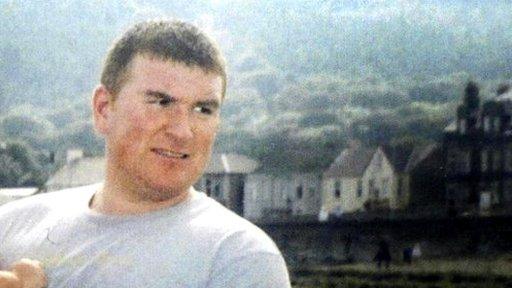
Robert McCartney was murdered outside a Belfast bar in 2005
Ms McCartney said it hadn't dispelled her suspicions, nor had it established them.
"The responsibility for the murder lies with those who committed it and people do have information that they could still bring to the police," she added.
'No evidence'
Police ombudsman, Dr Michael Maguire, said he believes the police did their best in difficult circumstances, which included potential eyewitnesses being intimidated by the IRA.
"We found no evidence that anyone was protected from prosecution," he told BBC News NI.
"It is quite clear the police did their best. The investigation was complex, with some difficult obstacles, including a reluctance by some witnesses to give evidence and concerns about the credibility of others.
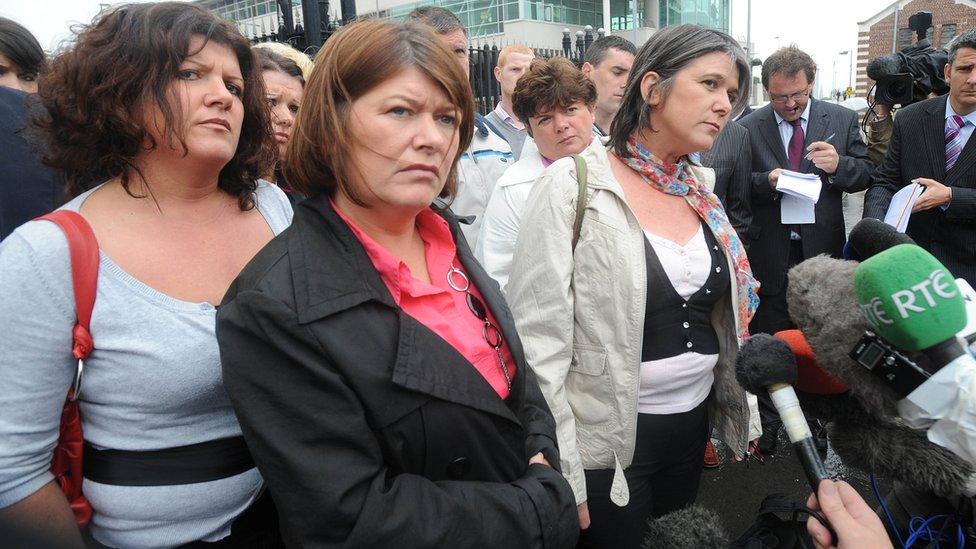
Robert McCartney's sisters have long campaigned for justice over his murder
"The investigation was detailed and comprehensive, and let's not forget that three people were brought before the court and faced trial.
"I can understand if the family feel the criminal justice system has failed them, but there is no evidence that police played any part in that failure."
The findings, set out in a report given to Mr McCartney's family on Tuesday, have been welcomed by the PSNI.
"We understand the frustration of the McCartney family that no one has as yet been held accountable for Robert's murder," said Det Supt Jason Murphy.
"However, the PSNI has always maintained that an extensive, thorough and professional investigation was carried out into this horrendous crime.

Flowers left at the scene outside Magennis's Pub in Belfast after the fatal stabbing of Robert McCartney in February 2005
"An independent investigation by the police ombudsman has now confirmed that this was the case and that every effort possible was made to identify the killers."
Friends of Mr McCartney who were with him on the night he was killed said he was attacked after a row involving the partner of a senior member of the IRA in Magennis's pub.
Mr McCartney and two friends were attacked in a side street after being chased from the bar by a number of men.
The IRA initially denied any involvement, but later told his family it had expelled three members suspected of involvement. It also offered to shoot those responsible., external
Remove forensic evidence
There were believed to have been more than 50 people inside the pub at the time, but none gave evidence in the trial of three men charged in connection with the killing.
Members of the IRA were said to have used bleach and other materials to thoroughly clean the bar to remove potential forensic evidence.
The McCartney family met former US President George W Bush during their worldwide campaign for justice.
Robert McCartney's family accused republicans of hindering the murder investigation by covering up what happened, and threatening witnesses.
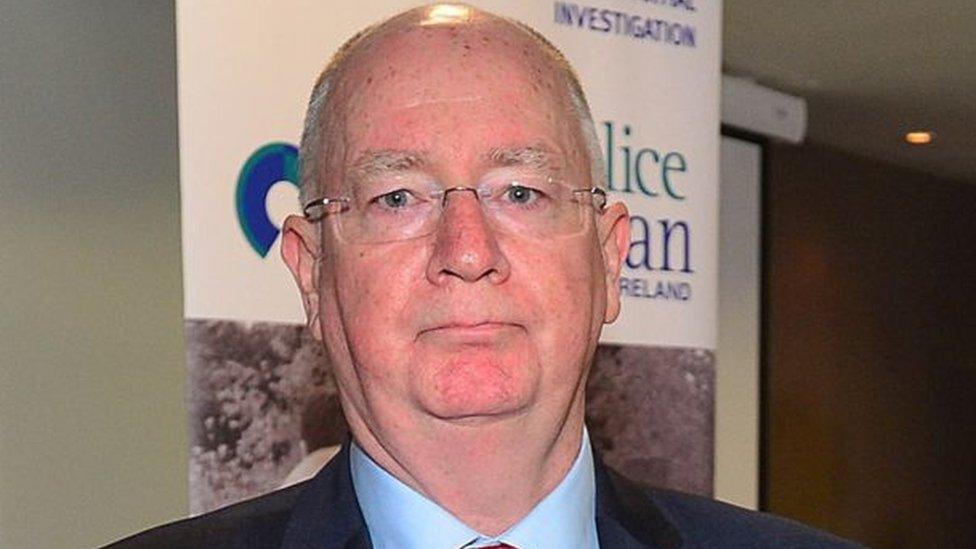
Dr Michael Maguire said no evidence of collusion was found
They were also critical of the PSNI. In 2009 they made a number of allegations about the nature of the investigation to the office of the police ombudsman.
They included a complaint about the time it took officers to go to the bar, which they said allowed it to be cleaned.
Claims rejected
But Dr Maguire said that delay was not due to any inefficiency on the part of the police, and rejected claims that virtually all of the potential forensic evidence was destroyed.
The ombudsman also said police went to "considerable lengths" to identify those who had been in the bar at the time of the row, including door-to-door inquiries and media appeals.
In a statement, the PSNI have appealed to anyone with information about the killing to contact them.
- Published11 June 2015
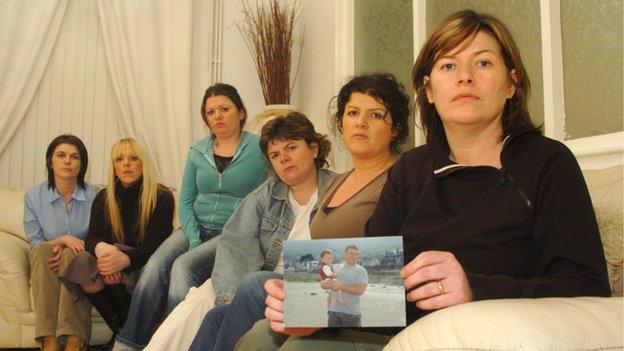
- Published4 July 2014
